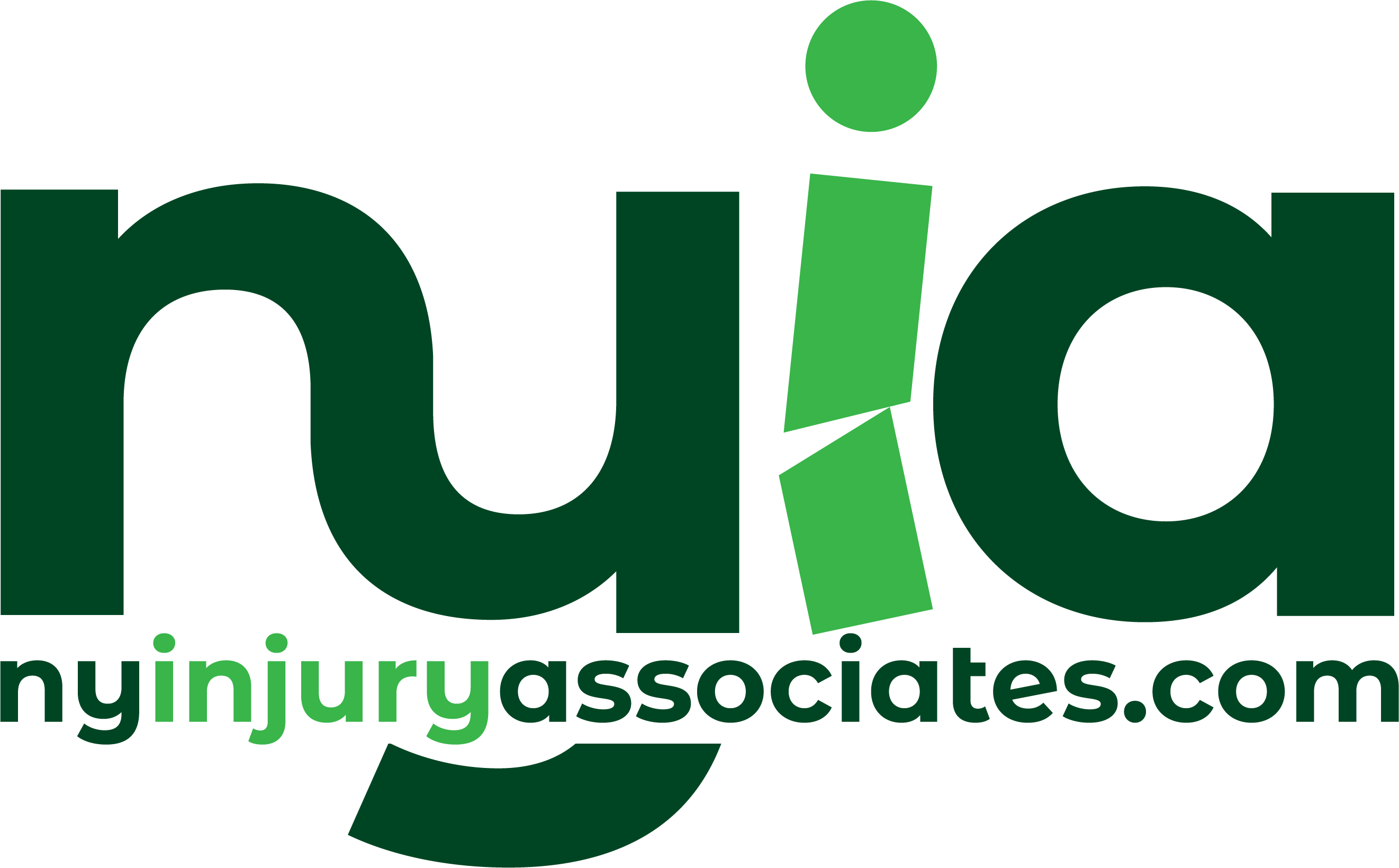Can I Get a New Job While Seeing a Workers Comp Doctor in Huntington?
Navigating the complexities of workers’ compensation can be overwhelming, especially when considering a job transition. In the heart of these challenges lies a critical question: Can you pursue a new job while seeing a workers comp doctor in Huntington? This inquiry is more than a legal dilemma—it’s about balancing the pursuit of career development with the necessity of medical treatment after a workplace injury. New York Injury Associates is here to help you!
Understanding the intersection between employment law, workers’ compensation benefits, and personal career goals is essential for anyone in this position. We will unravel critical considerations when changing jobs amidst ongoing medical treatment by a workers’ comp doctor. We will explore practical steps before making a job switch, key medical factors to consider, and how to navigate a proper healing process when dealing with the complexities of workers’ comp claims. This article will help patients learn how to manage their careers and health simultaneously. Keep reading our comprehensive guide and protect your rights for a secure future.
Understanding Workers’ Comp Benefits
Workers’ compensation benefits provide medical and financial support to employees suffering from work-related injuries or illnesses. There are four main types of workers’ compensation benefits available to eligible employees:
- Medical Benefits: Covers the cost of medical treatment related to the work injury or illness.
- Wage Replacement Benefits: Provides a portion of the worker’s lost wages during the period they can’t work.
- Disability Benefits: Compensates for the loss of earning capacity due to a work-related injury or illness.
- Vocational Rehabilitation: Assists the injured worker in returning to suitable employment through training or job placement assistance.
Income benefits aim to replace a portion of the money lost due to a work-related injury or illness and include temporary income benefits (TIBs), impairment income benefits (IIBs), supplemental income benefits (SIBs), and lifetime income benefits (LIBs). Medical benefits cover reasonable and necessary medical care needed to treat the work-related injury or illness. Disability benefits provide financial support to individuals who can’t work due to a disability, ensuring they can meet their basic needs. Vocational rehabilitation services assist these individuals in returning to the workforce by offering job training, career counseling, and support in finding suitable employment tailored to their abilities and limitations.
Eligibility Criteria: Workers Comp Doctor in Huntington
To be eligible for workers’ compensation benefits, an individual must be an employee and have sustained an injury or illness related to their job. Not all workers qualify for these benefits; for instance, independent contractors, freelancers, consultants, or volunteers are generally not covered under workers’ compensation laws. An employee’s eligibility may also fall under scrutiny if the employer disputes the claim’s facts. Under state laws, undocumented workers, seasonal workers, domestic workers, and agricultural workers may be exempt from workers’ compensation requirements.
Most employers must carry workers’ compensation insurance, which is determined by the number of employees, the type of business, and the nature of the work. For patients concerned about their eligibility, there’s more to consider in Huntington and surrounding areas. Workers’ compensation laws are complex and nuanced and deal with countless scenarios. One common scenario is off-the-job injuries. Yet, even employees who suffer off-the-job injuries can receive workers’ compensation. New York is one of the few states that require employers to offer disability benefits coverage to employees injured off the job. Still, these employees need to understand that medical care is the employee’s responsibility and isn’t covered by the employer or insurance carrier. The Disability Benefits Law provides weekly cash benefits to replace, in part, wages lost due to injuries or illnesses that don’t arise out of employment.
Important Considerations for Anyone Looking for a Workers Comp Doctor in Huntington
- Medical Eligibility Criteria: To qualify for disability benefits, employees must be under the care of a physician, chiropractor, podiatrist, psychologist, or certified nurse midwife.
- Lifetime Benefit Potential: Medical care is a lifetime benefit for workers’ compensation recipients, and employees are eligible for medical treatment even after they return to work.
- Other Workers’ Comp Benefits: Employees are entitled to medical care for work-related injuries or illnesses, including reimbursement for travel and related medical expenses.
- Critical Guidelines: The Workers’ Compensation Board has Medical Treatment Guidelines that healthcare providers are required to use when treating specific injuries.
- Telehealth Appointments: On July 11, 2023, the NYS Workers’ Compensation Board established permanent regulations to allow telehealth appointments in certain situations for workers who sustain work-related injuries or illnesses.
- Independent Medical Examination: The insurer can ask the employee to see an independent medical examiner. Employees should receive notice of an independent medical examination at least seven business days before the exam.
In most cases, injured workers can fully recover and return to their original jobs once the workers’ comp doctor clears them. Every patient’s recovery journey is different, and some workers may face limitations that prevent them from returning to their original jobs. A workers’ comp doctor in Huntington typically follows a step-by-step process to clear a patient to return to work:
- Initial Assessment: The doctor evaluates the patient’s medical history, the nature of the work-related injury, and current condition.
- Medical Treatment: The provider gives appropriate medical treatment and monitors the patient’s progress.
- Functional Evaluation: The doctor assesses the patient’s physical capabilities, limitations, and work restrictions.
- Communication: The doctor communicates with the patient’s employer, insurance company, and legal representatives to discuss the patient’s ability to return to work.
- Clearance Decision: Based on the medical assessment and functional evaluation, the doctor determines whether the patient can return to work, with or without restrictions.
- Documentation: The doctor provides comprehensive documentation outlining the patient’s medical condition, any limitations, and the recommended work restrictions, if applicable.
- Follow-Up: After returning to work, the doctor may schedule follow-up appointments to monitor the patient’s progress.
This process ensures the patient’s return to work aligns with their medical condition and capabilities. In more complex scenarios, workers could also need training and support to transition into a different job. Thankfully, there are plenty of resources to assist in the return-to-work process. Injured workers should always seek guidance and request information from their medical provider to help them focus on recovery.
Why Understanding Your Workers Comp Benefits is Important When Seeing a Workers Comp Doctor
Understanding workers’ comp benefits is crucial for patients when consulting a workers’ compensation doctor. The advice empowers patients to make informed decisions about their medical treatment and potential return to work. In 2022, private employers reported 2.8 million nonfatal workplace injuries. According to the U.S. Bureau of Labor Statistics, injuries are up 7.5% since 2021. Helping patients understand the available benefits can lead to better health outcomes and reduce the risk of disputes or delays in receiving medical care. Patients who comprehend their workers’ comp benefits are more likely to actively participate in their recovery, leading to improved rehabilitation and quicker return to work.
In fact, research from Preventative Medicine Reports indicates that early intervention and management of injuries can significantly reduce the time to return to work after an injury. The data generated by the Workers Compensation Authority supports that the time it took to return to work post-injury was reduced by 68% over six years. More involved patients can navigate potential challenges when accessing specialist care or understanding their right to vocational rehabilitation services. This knowledge is empowering and gives patients the confidence to advocate for their needs and collaborate with their workers’ compensation doctors.
Patients should also know their rights and obligations when considering changing jobs while receiving workers’ compensation benefits. This transition involves complex legal implications, including potential impacts on benefit eligibility and ongoing medical treatment. Patients contemplating an employment change should seek legal counsel and consult their workers’ compensation doctor for a smooth and compliant transition.
Legal Considerations When Changing Jobs
In a perfect world, your worker’s compensation case would go smoothly, you would receive the benefits you deserve, and get the medical care you need to heal. Life rarely follows suit, and anyone dealing with worker’s compensation understands that the situation is fluid. As you navigate the complexities of worker’s compensation, here are some key points to consider:
- Continuation of Benefits: Changing jobs doesn’t necessarily mean you forfeit your worker’s compensation benefits. However, the situation varies by jurisdiction and requires some research to understand how it might affect your situation.
- New Claims: Starting a new job while on worker’s compensation could complicate future claims if you haven’t fully recovered from your original injury.
- Coverage Gap: Be mindful of gaps in health coverage. Leaving your current job could mean losing your health insurance, which might be crucial for ongoing medical treatments.
When contemplating changing jobs while receiving workers’ compensation benefits, individuals must consider the legal consequences, especially concerning medical restrictions and state-specific regulations. Understanding the depth of these considerations is critical to a smooth transition that doesn’t adversely affect benefits or legal standing.
Consulting a Workers’ Compensation Attorney
Consulting with a workers’ compensation attorney is one step forward in navigating the complex landscape of workers’ compensation laws. An attorney can provide tailored advice based on your situation so you can make decisions with a complete perspective of the potential impacts. Legal guidance is valuable in evaluating vocational benefits eligibility and maintaining compliance with medical restrictions. Patients who don’t consult with an attorney can suffer negative consequences, including forfeiting certain benefits, non-compliance with New York laws, and potential fraud. An experienced attorney can also assist in negotiating settlements and ensuring that any employment change doesn’t jeopardize an individual’s benefits or future claims.
State-Specific Regulations in New York
We’ve already established that New York’s workers’ compensation system supports employees who suffer job-related or non-job-related injuries or illnesses. It operates on a no-fault basis and covers various medical expenses, rehabilitation costs, and lost wages. When considering a job change while receiving benefits, patients must understand their obligation to report any new employment and income to avoid adjustments or termination of benefits. The new job must also not violate the treating physician’s medical restrictions to prevent jeopardizing the benefits.
Reporting New Employment
New York law mandates that individuals receiving workers’ compensation benefits must report any new employment to the workers’ compensation board and their insurance carrier. This transparency ensures that the system adjusts benefits based on the individual’s current earning capacity, safeguarding against overcompensation or undercompensation. Not reporting new employment while receiving benefits counts as fraud. The legal and ethical obligations to report changes in employment status highlight the importance of maintaining good faith with the workers’ compensation system. Adhering to these guidelines ensures that individuals can make informed decisions that protect their benefits and legal rights.
Practical Steps to Take Before Switching Jobs
If you’re serious about switching jobs, try to approach the situation as thoughtfully as possible. You’ll have to approach a potential solution from many angles before success.
Communicating with Your Workers Comp Doctor
Did you find a new employment prospect that is more promising than your current role? With thousands of work-from-home opportunities and freelance sites online, finding work that makes you happier isn’t the hard part. Before choosing a new career path, discuss the new job’s demands with your treating physician. Your doctor can assess whether the job fits your medical restrictions and provide necessary documentation if disputes arise. At a minimum, the new role’s physical demands shouldn’t exceed your current capabilities, and you and your prospective employer clearly understand any required accommodations.
Medical Evaluation of Job Demands
You should start your new job opportunity with a detailed review of the job’s physical and environmental demands. Your Huntington worker’s comp doctor needs to understand the postures required, the frequency of lifting and carrying heavy loads, and the type of actions involved in the daily tasks. Your workers’ comp doctor should also evaluate the equipment usage and exposure to extreme temperatures or noise. An assessment will determine if the new job aggravates your condition or hinders recovery. If your injuries are more complex, it makes sense to discuss visiting other specialists to accommodate your needs. During your evaluation, you’ll likely discuss other factors, such as:
- Medical Records: You’ll keep your medical records up-to-date by documenting your injury, treatment, and current medical status. You’ll need this documentation for your new employer.
- Functional Capacity Evaluation: Consider requesting a functional capacity evaluation (FCE) from your provider to determine your ability to perform work-related tasks.
- Future Medical Care: Consider how a job change might impact future medical care related to your injury. Continue any prescribed treatments and attend all follow-up appointments.
Notifying Your Employer
Once you decide to proceed with a new job, you must inform your current employer and the workers’ compensation insurance company. Notifying your employer maintains transparency, so provide them with all the pertinent details. Coordinating with your employer may also involve:
- Disclosure: While privacy laws protect your right to medical confidentiality, you should disclose any accommodations to perform your new job safely.
- Workplace Adjustments: Work with your new employer to implement any recommended adjustments or accommodations.
Report any significant changes in your medical condition to your healthcare provider, new employer, and workers’ compensation insurance carrier. By taking these practical steps and ensuring clear communication with all parties, you can make a well-informed decision supporting your health and career goals.
How Does Maximum Medical Improvement Affect Your Workers Comp Claim?
The treating physician establishes the case for maximum medical improvement (MMI). MMI marks the stage where an injured worker’s condition has stabilized so that no significant medical improvement will continue despite ongoing medical treatment. An MMI status doesn’t imply full recovery but means changes are coming. Reaching MMI shifts the focus of healthcare provision from active recovery efforts to managing any remaining impairments. At this juncture, a workers’ comp doctor in Huntington would concentrate on helping patients adapt to and live with any lasting conditions. It’s transitioning from curative to palliative care.
How does this affect you and your medical treatment?
There’s no guarantee, but here’s what is likely to happen:
- Transition in Benefits: Under MMI, the nature of workers’ comp benefits can change significantly. If the worker has a residual impairment, permanent partial disability benefits may replace your temporary disability benefits. The adjustment reflects the change from temporary incapacity to long-standing, permanent conditions.
- Settlement Negotiations: Your MMI status determines the extent of permanent disabilities, is central to negotiations, and the compensation owed to the injured worker. Settlements may account for future medical care, lost wages, and costs associated with adapting to the disability.
- Legal and Insurance Considerations: The MMI status can also influence legal actions and insurance decisions. Insurers may try to close the claim, seeking to address any permanent disability benefits. This is also a critical point where disputes or legal intervention occur.
Challenges and Considerations
Aside from the legal challenges common for the end of workers’ comp claims, patients may have to deal with additional issues.
- Variability in Recovery: The nature and severity of the injury can alter your path to MMI. Personal factors like age and overall health can complicate the assessment and benefits adjustment.
- Potential for Condition Worsening: A worker’s condition could deteriorate after reaching MMI. In such cases, re-evaluation may be necessary to adjust benefits or reassess the need for additional treatments, such as chiropractors and orthopedists.
Workers Comp Doctor in Huntington

In the intricate weave of health and legal considerations in life, New York Injury Associates stands as a beacon of hope and expertise. Our diverse team, spread across 14 Long Island and Queens locations, is uniquely positioned to address your medical needs with services spanning eight medical fields. From chiropractic to pain management, our approach supports individuals in reclaiming their autonomy and confidently navigating workers’ compensation.
The journey towards recovery, especially when intertwined with legal nuances, demands medical expertise and a dedicated partner who understands the stakes. This is where New York Injury Associates excels, offering top-tier medical consultations and vital legal support. Whether stepping into a new job or seeking assistance so your recovery doesn’t impede your career, our workers’ comp doctors in Huntington will guide you.
Our commitment extends beyond the consultation room. We recognize the critical nature of aligning medical care with every patient’s journey toward recovery. Our staff adeptly manages medical and legal documentation to safeguard your interests and uphold the integrity of any legal proceedings.
Choosing New York Injury Associates means entrusting your health to a company that values your well-being as its paramount objective. Our promise is a partnership that will restore your health and protect your legal rights. Your journey towards health and peace of mind starts with New York Injury Associates. Contact us today and take the first step towards a brighter, healthier future.





